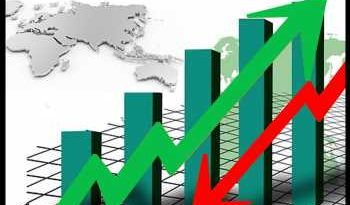Italy and Spain help to push eurozone out of recession
Germany’s economy grew by only 1.5% after manufacturing was hit by computer chip shortage
- Business live updates: eurozone economy powers ahead
- Coronavirus – latest updates
- See all our coronavirus coverage
Last modified on Fri 30 Jul 2021 07.24 EDT
Italy and Spain have helped drive the eurozone out of recession after a stronger than expected 2% expansion in the second quarter of 2021, official data has shown.
The 19-nation single currency area beat forecasts of a 1.5% increase in gross domestic product despite a disappointing performance from the bloc’s powerhouse economy, Germany.
Figures from the EU’s statistical agency, Eurostat, showed the eurozone growing at an annual rate of 13.7% in the April to June period, with this year’s bounceback in activity a stark difference from the slump in output caused by Covid lockdowns in the same period of 2020.
Growth in the second quarter of 2021 followed declines of 0.6% in the final three months of 2020 and a further 0.3% drop in the first quarter of this year, as the eurozone was hit by fresh waves of the pandemic.
Germany was expected to post 2% growth in the second quarter after a decline of 2.1% in the first three months of the year but managed only a 1.5% expansion after its strong manufacturing sector was affected by disruptions to supply chains caused by a shortage of computer chips.
However, Italy and Spain – the third and fourth biggest economies in the single currency area – grew faster than City economists anticipated. Spain bounced back from a 0.4% decline in first-quarter output to record growth of 2.8% in the three months to June, while Italy’s 2.7% expansion was double the 1.3% pencilled in by analysts.
Of the eurozone’s four biggest economies, France had the weakest growth in the second quarter after a flat performance in the first three months of the year, with 0.9% growth between April and June.
Eurostat also said that higher energy prices caused eurozone inflation to rise from 1.9% in June to 2.2% in July – the highest annual rate since October 2018 and slightly above the European Central Bank’s 2% target rate.
Andrew Kenningham, the chief Europe economist at the consultancy Capital Economics, said: “We expect another strong number for eurozone GDP in the third quarter, perhaps a little over 2% quarter on quarter, which would bring the economy close to, but below, its pre-pandemic level.”
Figures published on Thursday show the US economy returned to its pre-pandemic level, despite growing at a weaker rate than expected in the second quarter. China became the first big economy to recover from the pandemic-induced global recession last autumn. The UK, having suffered one of the worst downturns in the advanced world, is also not expected to recover until at least later this year.
Source: Read Full Article


